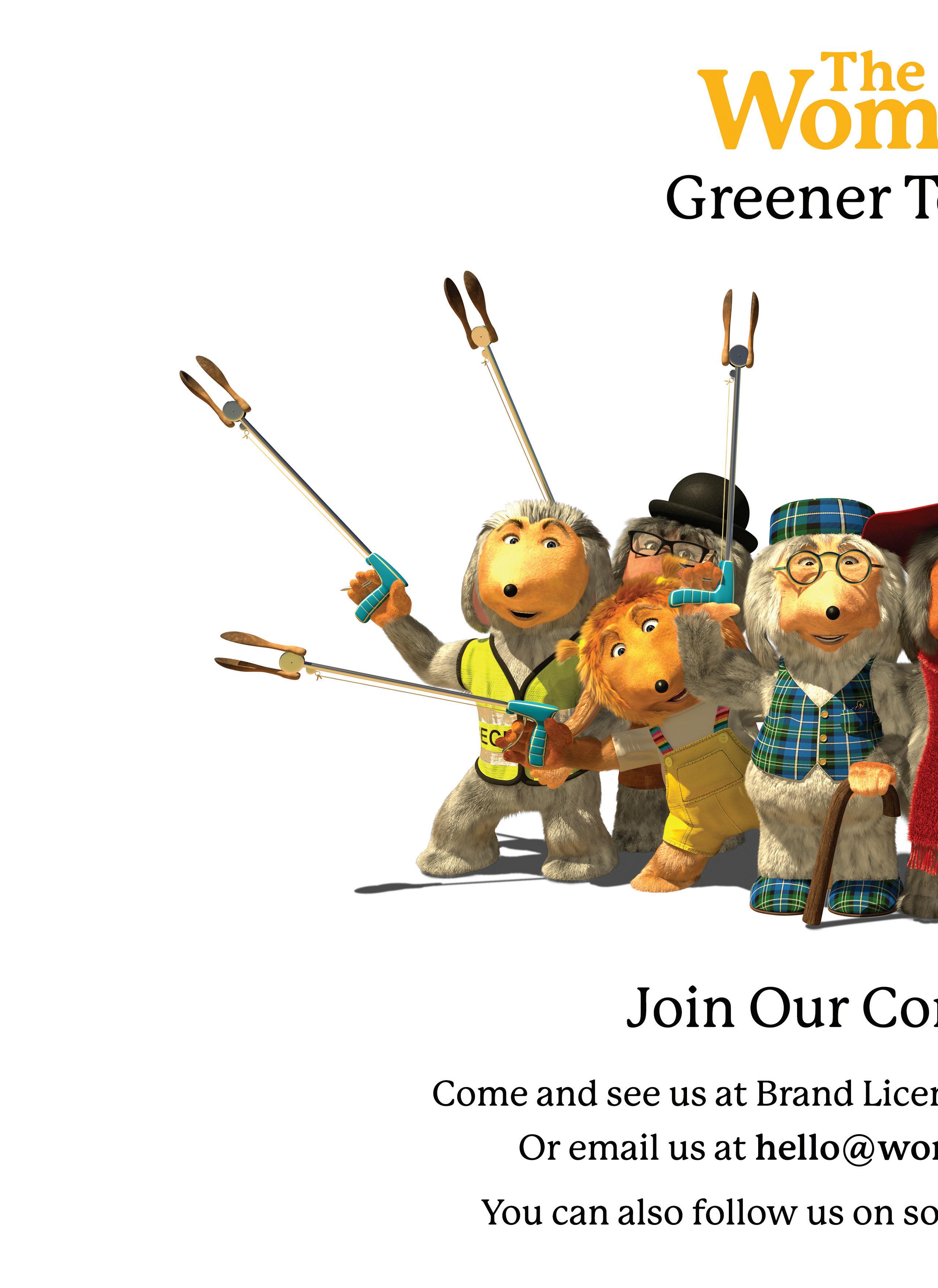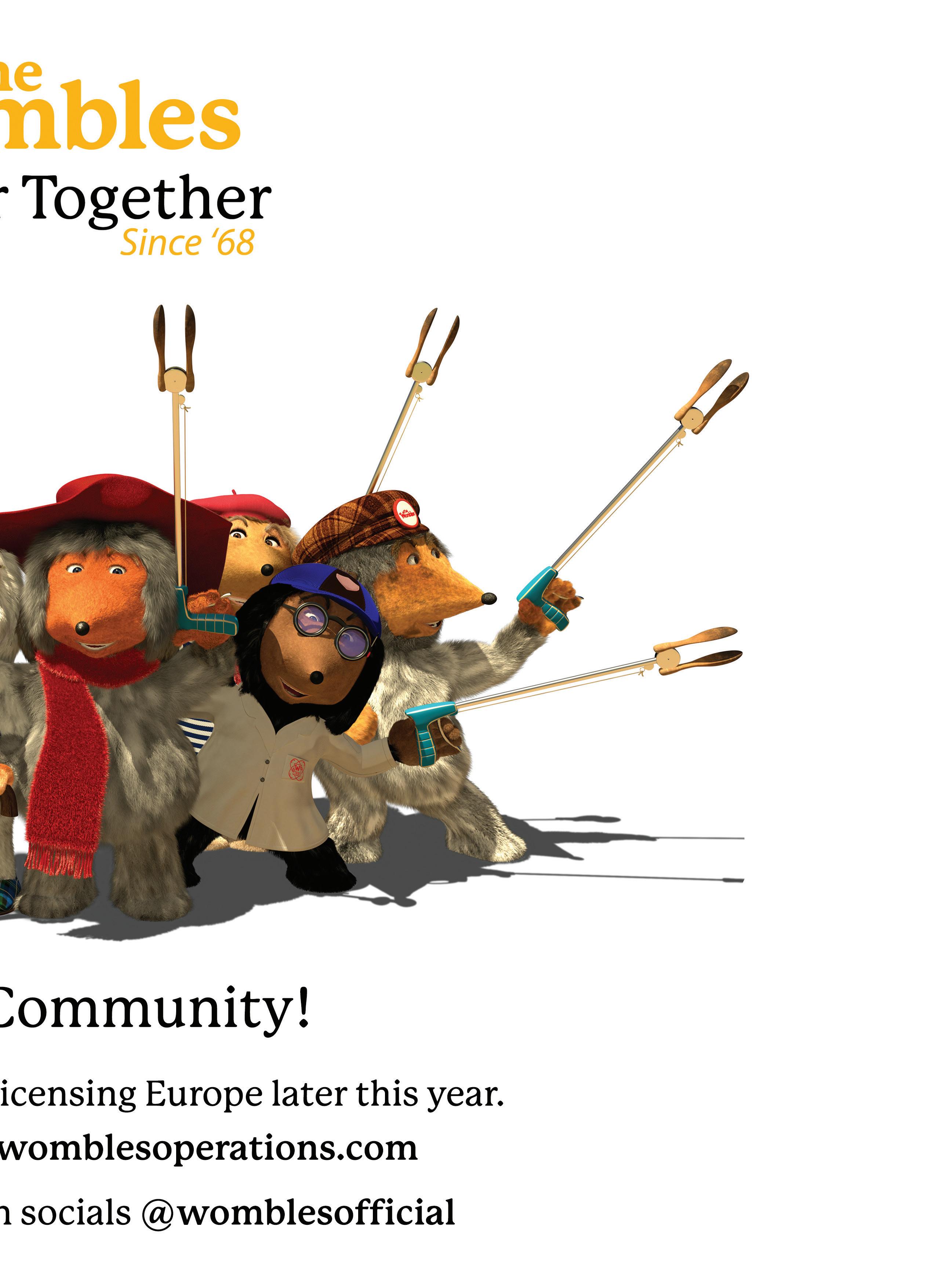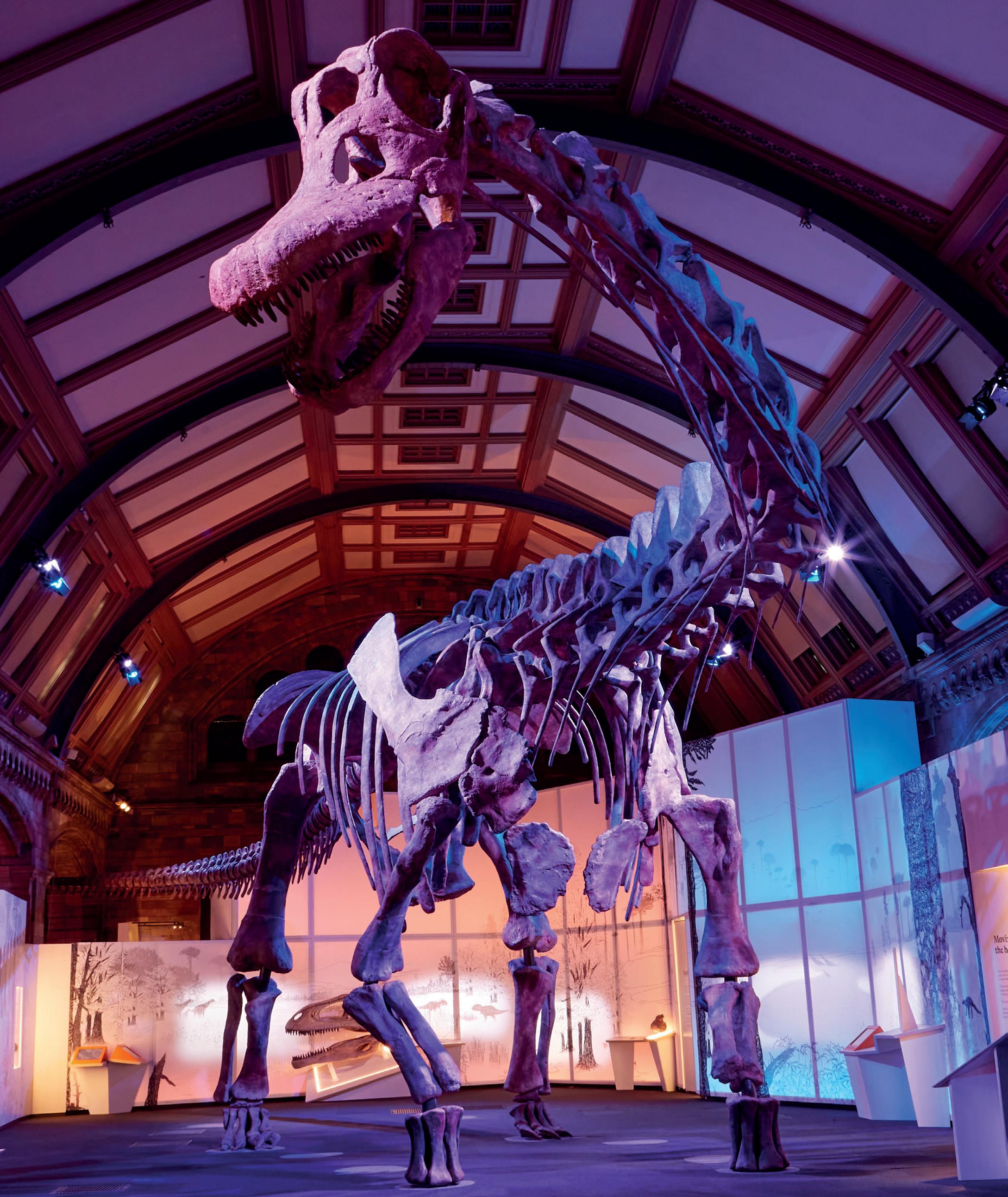
8 minute read
kind of a big deal
But Patagotitan isn’t the only thing making giant strides at the Museum...
• Winners of The Sustainability Brand Licensed Product or Range at the 2023 Brand & Lifestyle Licensing Awards for their collaboration with Dunelm
• Winners of Best Brand Licensed Gifting Product or Range for their sustainable stationery collection with Blueprint Collections
• 2nd Womenswear Collection launched in May 2023 with Joanie, who are renowned for their commitment to sustainable fabrics and practices
Eu Parliament Wants A Clampdown On Carbon Neutral Claims
Companies operating in the European market could face a ban on labelling products ‘carbon neutral’ where those claims are backed only by offsetting activities.
The EU voted on laws last month to clamp down on such claims and enforce stricter antigreenwashing rules around businesses making carbon neutral statements on their products.
“This proposal aims to strengthen the fight against greenwashing by banning practices that mislead consumers on the actual sustainability of products,” said EU Justice Commissioner, Didier Reynolds. “By doing so, consumers can choose products that are generally better for the environment. This will encourage competition towards more environmentally sustainable products.”
A draft directive has already moved to ban the use of generic environmental claims such as ‘environmentally friendly’, ‘natural’, or ‘eco’ if not supported by evidence. Lawmakers propose to extend the ban to claims based on carbon offsetting schemes, such as ‘CO2 neutral’ or ‘carbon neutral’, which have been criticised for misleading consumers.
LEGO SCIENTISTS EXPLORE E-METHANOL AS REPLACEMENT TO FOSSIL-BASED PLASTIC
The LEGO Group has partnered with European Energy and Novo Nordisk to explore e-methanol as a lower-carbon alternative to conventional plastic production.
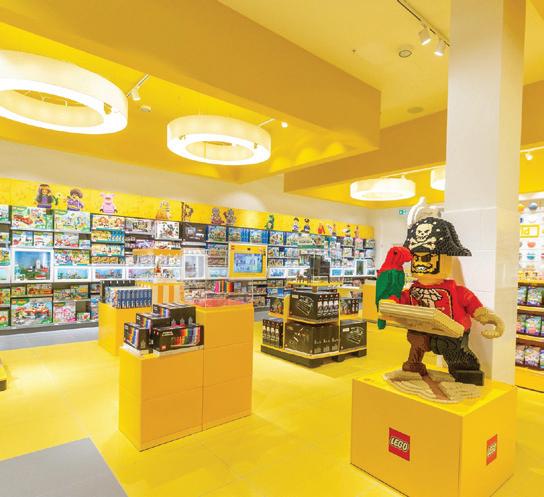
European Energy will use renewable energy and biogenic CO2 – commonly referred to as e-methanol – to produce a new plastic which will go on to replace some fossil-based plastic with the LEGO Group’s product portfolio in the future.
Biogenic CO2 is carbon dioxide released through the combustion or decomposition of organic material such as that absorbed, stored, and emitted by soil, trees, plants, and grasses.
Nelleke van der Puil, vice president of materials at the LEGO Group, said: “We are proud to join forces with European Energy and Novo Nordisk to accelerate research and progress in the development of lowercarbon plastics.
“The project will give us our third sustainable material we’ve developed alongside bio-PE and prototype bricks made from recycled PET. This agreement is an exciting step towards our ambition.”
The production will be powered by renewable energy from wind and solar plants as well as biogenic CO2. The first batch is expected to be delivered to the LEGO Group in 2024.
Bare Cards Pushes The Envelope For Uk Greeting Cards Sector
A UK greeting card start-up on a mission to educate customers on the industry’s single-use waste problem has rebranded under the name Bare Cards – Naked and Free.
Introduced in 2021, the team says the rebrand will better tell the story behind the greetings card sector’s tussle with the ‘untraceable waste’ generated by envelopes and cello wrap while highlighting the benefits of its envelope-free design.
Bare Cards can be delivered enclosed in their own incorporated envelope – a design innovation that founder Derren Seal said will ‘help stem the number of envelopes that go missing and are thrown away upon receipt.’
“We are ever increasing our knowledge about the damage excess waste is doing to our planet, and the multi-billion-pound greeting card industry is no different,” Derren told Products of Change.
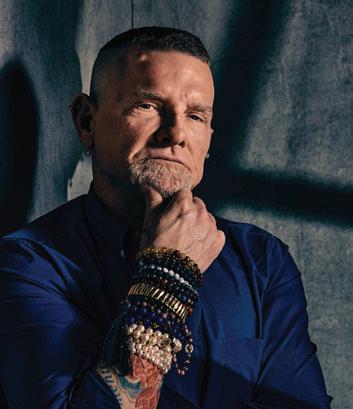
“The amount of cello wrap used to keep cards with their envelopes is decreasing, but not fast enough.”

Bare Cards also acts to tackle the issue of costs publishers face to replenish envelopes that become lost or stolen.
“Retailers frequently express their frustration over envelopes being separated from their corresponding cards,” continued Derren. “Bare Cards tackles all these waste issues in the industry. We’re here to show people a more sustainable alternative.”
Itsybitsywow Bolsters Plans For Meteoheroes Climate Curriculum In Us
The new online retail experience, itsybitsyWOW will be ‘one of many outlets’ through which the children’s TV producer Kenn Viselman will drive his ambition for a US-wide climate curriculum inspired by the animated series, MeteoHeroes.
Unveiled last month to a ‘cacophony’ of industry excitement, itsybitsyWOW aims to ‘transform the online retail experience’ with a mix of product, content, and educational opportunities that empower children ‘to make a difference.’
Part of this is an offering from the environmental-themed MeteoHeroes (of which Kenn is an executive producer) including live performances and guest speakers to engage children with the topic of climate change ‘to help alleviate the current levels of climate anxiety.’
“MeteoHeroes allows us to explore how young children and their families can help change the future for the better,” Kenn told Products of Change. “Everything we are focusing on gives our youth the tools they need to feel powerful.”
Last year, Kenn announced plans to front a Climate Change school curriculum, community outreach, and online education platform through the MeteoHeroes IP. With partners ready to go and 30,000 schools in America already committed, he is “more committed than at any point to finding funds for the project.”
“Everything and everyone in my life right now seems to play a role in this initiative,” he said. “Our ability to reach out to our audience is just the beginning. Our goal is to use itsybitsyWOW. com as just one of many outlets to share our age-graded curriculum about climate education with the world.”
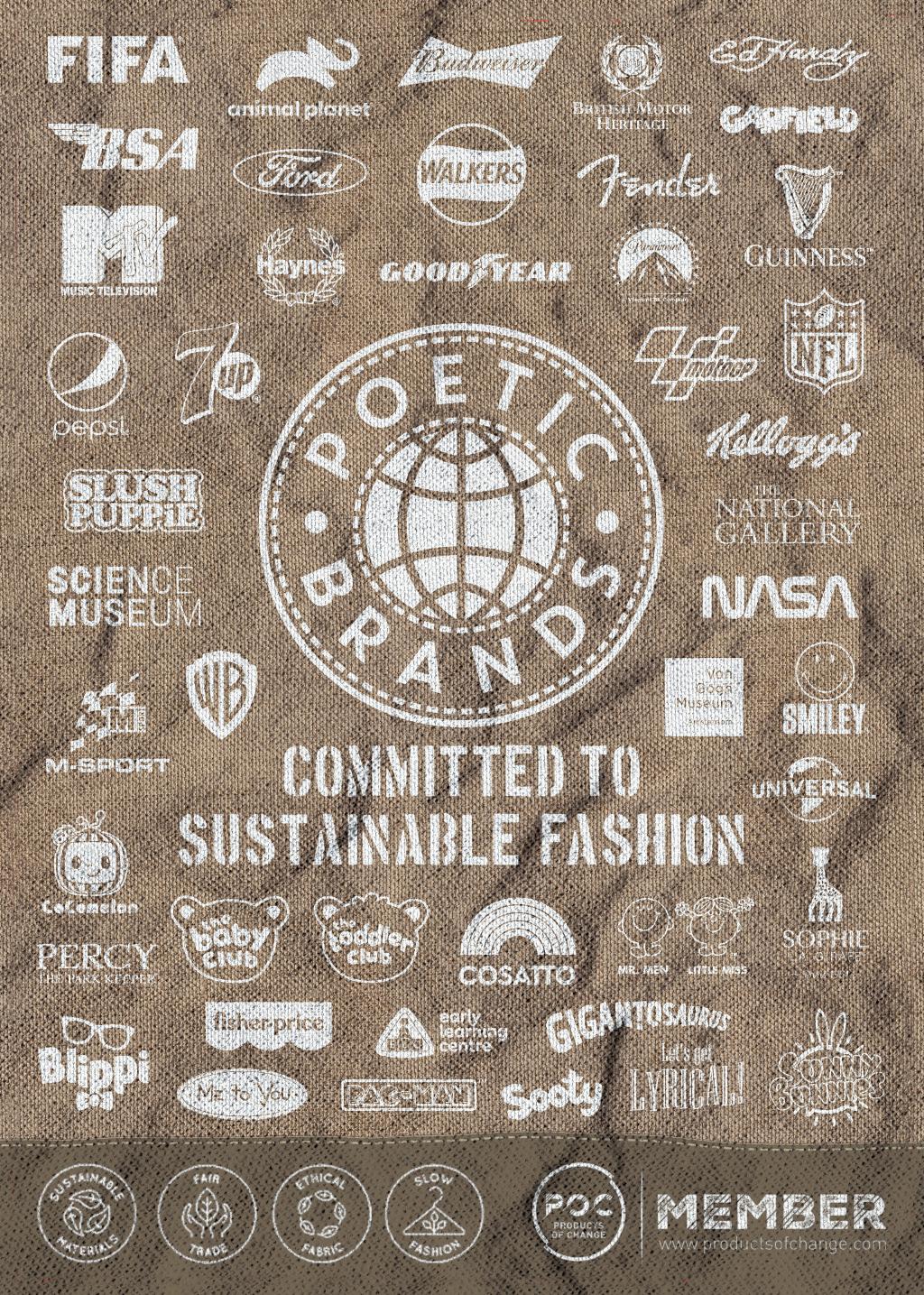
Guest Columnist
M&S DRIVES NOBODY’S CHILD NEXT GROWTH SPURT
Julia Redman, founder of Buyer’s Eye and POC’s
Ambassador for Fashion explores the issue of sustainability in apparel.
Every time we create a new product, we are emitting carbon and using up natural resources.
As a fashion buyer my entire career, buying for some of the high street’s biggest brands, I’ve bought more than my fair share of clothing. I love creating products that other people will cherish and wear again and again or clothe their children in, and on more than one occasion licensing has helped me create iconic and much-loved fashion ranges – S Club Seven, JCB, Peter Rabbit, High School Musical, Natural History Museum, Barbie to name a few.
But here’s the thing. We are creating somewhere between 100 and 150 billion items of clothing every year. There are eight billion people on the planet. That equates to somewhere between 12 and 19 new items of clothing for every person on the planet, every year. But it isn’t every person on the planet, is it? It’s the 1.3 billion who live in the developed world that account for the majority of this fashion consumption. And still the trend for more clothing is perpetuated.
According to the British Fashion Council, there are enough clothes on the planet right now to clothe the next six generations.
Over 50% of all fabric produced is made from polyester, essentially plastic, derived from fossil fuel. More than all the other fibres we use added together. Why? Because it’s the cheapest fibre on the planet. It’s why it literally fuels the fast fashion industry. Even if your polyester is recycled, it’s still plastic, will still end up in landfill, and will still not biodegrade.
Furthermore, the microfibres released when polyester clothing is washed will still end up in the ocean. Scientists believe that every fish in the ocean is now contaminated with these micro plastics, which means they are now part of our food chain. We are literally eating our own waste plastic.
Most recycled polyester is made from rPET –basically melted down bottles. Such is the demand, we are melting down vast quantities of food grade plastic to make cheap clothes. The result? There is not enough food grade plastic to meet demand either, which leads to yet more plastic production to plug the gap.
So, what can we do? Buy less and consume less, for a start. We need to plan inventory better, and end buying for markdown. Build a supply chain that enables buying smaller quantities, closer to home.
Reduce our use of polyester and other fibres from fossil fuel and plastic. Innovation in textiles manufacturing is creating so many new options.
Work with your manufacturers to switch to renewable energy and create product that has a purpose. Fashion business as a force for good can support local communities, charities, and the workforce throughout the supply chain.
None of this will be easy, but the fashion industry has a responsibility to do better.
Marks & Spencer has injected further funding into Nobody’s Child, an eco-conscious fashion brand that successfully launched its first collaboration, Nobody’s Child x Happy Place by Fearne Cotton last year.
Founded in 2015, Nobody’s Child was the first guest brand to launch on M&S.com in 2020 and in 2021 M&S acquired a 27% stake in the brand. In the past two years, the brand’s revenue has more than quadrupled.
“Our partnership with M&S has gone from strength to strength, so I’m delighted we have received additional funding to fuel our next stage of growth,” said Jody Plows, ceo of Nobody’s Child. “This will enable us to broaden our product categories and build our customer base both in the UK and internationally.
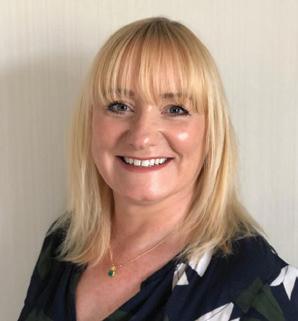
“Nobody’s Child is an extremely ambitious brand and we continue to strive forward to offer responsible product that’s accessible and affordable for all women. We are incredibly excited for the future and are grateful to have M&S with us on this journey.”
90% of Nobody’s Child’s 2022 collection was made using responsible fabrics while the team struck up a collaboration with Re-Fashion to promote circularity and give clothes a second life. The team states that over 70% of its dresses are made from LENZING ECOVERO, which are fully biodegradable and do not contribute to marine litter and microplastic pollution.
Smiley Originals Supports Rising Fashion Talent With Future Creators Fund
Smiley Originals Future Positive is investing in the future of sustainable fashion through the launch and selection of the first beneficiaries of its Smiley Future Creators Fund.
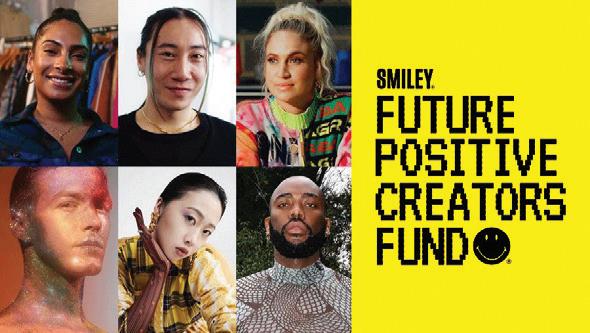
Nine young fashion designers – handpicked by the Smiley team for their engagement with the sustainable development of the industry – will receive a share of a £500,000 fund and mentorship support to develop their skills and concepts.
Among those selected are the London-based designers Ahluwalla, Chet-Lo and AGR, and Shutting Qiu. In partnership with Smiley, this young talent will be fostered in alignment with Smiley Originals Future Positive own commitment to the UN Sustainable Development Goal – Goal 12, responsible production and consumption.
Each designer selected for the bi-annual Future Creators Fund will receive a mentoring programme from Positive Luxury worth £10,000, while Smiley will work alongside a selection to mentor them on how to develop a 360-degree licensing collaboration with an IP.
“I am incredibly proud to support these young designers in their journey towards building a more sustainable future. This project has been designed to help kickstart, drive, and inspire sustainability both internally and externally and create excitement and momentum on this hugely important agenda,” Nicolas Loufrani, ceo and founder of Smiley Originals, told Products of Change.
“The Future Positive project is about responsible consumption. We are trying to get all our licensees to develop a growing share of their Smiley products made with sustainable materials and in more sustainable factories, and we are making tough choices in the process.
“The Creators Fund has shown the team – and our licensees – that we are determined to make this happen. This is not talking about where we want to be in five years’ time but investing in concrete projects now.”
While this year’s fund has focused on fashion, next year the Smiley Creators project will involve the lifestyle consumer products team to help advance change across food, beauty, home décor, stationery, and gifts.
